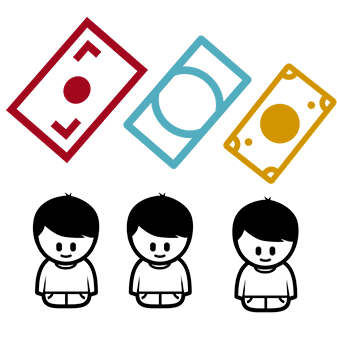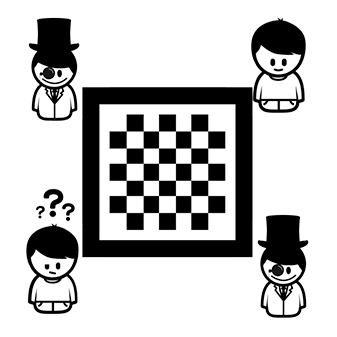Insight #2
Money: its form is a fundamental problem
The dematerialized money circulates easily. But it also makes it less controllable in the eyes of individuals. As money turns into information, other currencies emerge and restore some materiality.

1. Material money has its virtues
Individuals rely on currencies - coin, notes, check, ticket restaurant - to have the feeling of controlling their money. Counting your change, typing a code or writing a check are ways to visualize the expense and remember it. Identifying a currency because of its shape and weight, recognizing it with its symbols - the signature of the central bank for example - is also a way to identify it, and to be sure of its financial value. So that some people only consider these forms of money as "real".

2. But the dematerialization of the currency complicates this management style
Transformed into information, money circulates in frictionless processes: currencies become invisible, their minimal manipulation and the payment is reduced to a pressure of the finger on a screen. This fluidity accelerates the circulation of money. But it also has the effect of erasing all the practices that individuals use to feel that they control their money.

3. Currencies recover their form
Faced to the dematerialization of money, new currencies restore their concrete form. Local currencies that allow individuals to manipulate money again. Luncheon vouchers that allow individuals to reserve their money for pre-allocated expenses and thus regain control over their budget.

4. Formats as issues
Some actors dematerialize money when others rematerialize it. On the one hand, we gain in rapidity what we lose in control. On the other, we gain control of what we lose in fluidity. Who will win the battle of currencies?
L'étude

#GérerSonArgent
Currencies in practice
The banking sector believes that individuals use different currencies interchangeably and that they use them only to pay for purchases. In reality, individuals do not use all currencies in the same way, even though these currencies have exactly the same financial value. These various practices deserve to be understood to be better accompanied.
Découvrir l'étude


